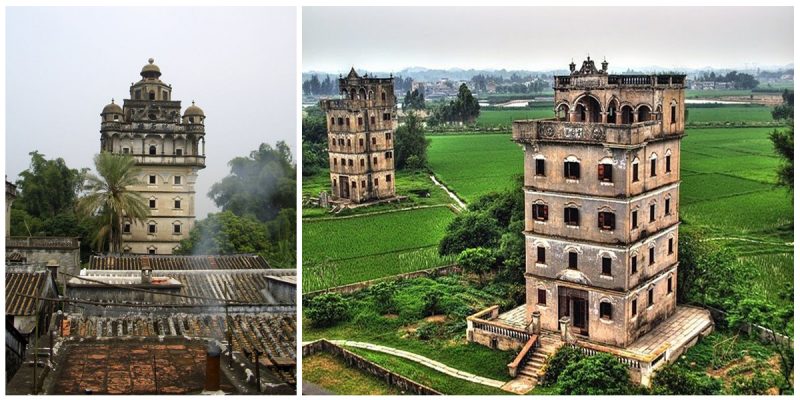The Kaiping Diaolou are fortified multi-storey towers, generally made of reinforced concrete. These towers are located mainly in Kaiping County, Guangdong province, China. Kaiping together with its neighbouring counties of Enping, Taishan and Xinhui are collectively known as Siyi, which literally means the “Four Counties” from which many Chinese labourers to North America, Australia, and Southeast Asia in the 19th century originated.
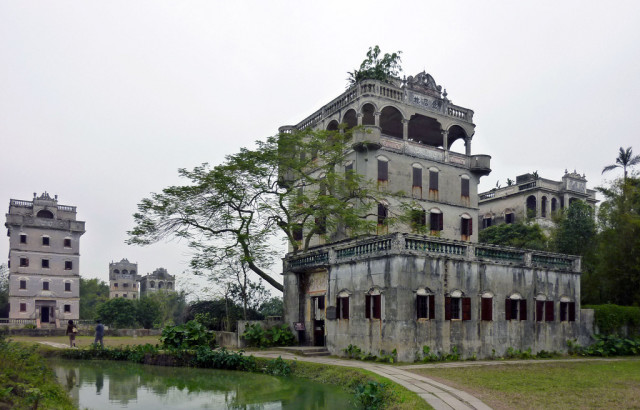
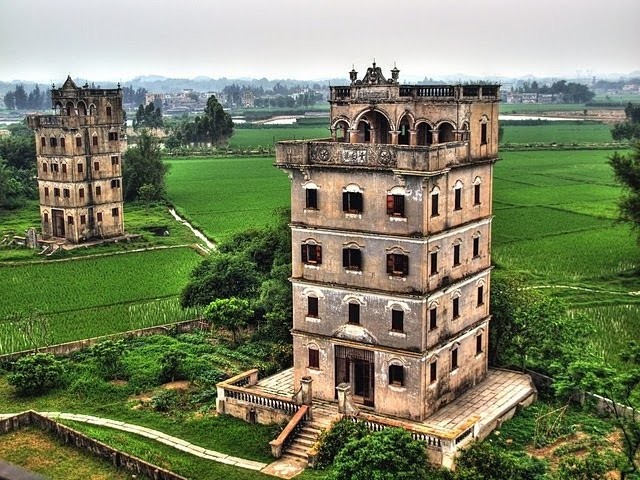
The first towers were built during the early Qing Dynasty, reaching a peak in the 1920s and 1930s, when there were more than three thousand of these structures. Today, approximately 1,833 diaolou remain standing in Kaiping, and approximately 500 in Taishan. Although the diaolou served mainly as protection against forays by bandits, a few of them also served as living quarters.
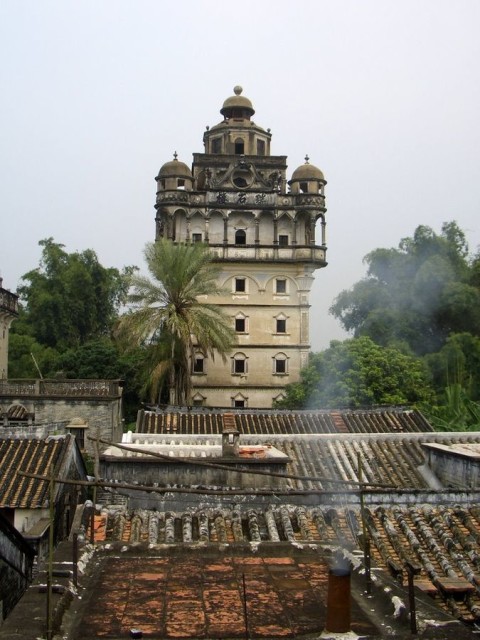
Kaiping has traditionally been a region of major emigration abroad, and a melting pot of ideas and trends brought back by overseas Chinese. As a result, many diaolou incorporate architectural features from China and from the West.
In 2007, UNESCO named the Kaiping Diaolou and Villages in China as a World Heritage Site. UNESCO wrote, “…the Diaolou … display a complex and flamboyant fusion of Chinese and Western structural and decorative forms. They reflect the significant role of émigré Kaiping people in the development of several countries in South Asia, Australasia, and North America, during the late 19th and early 20th centuries, and the close links between overseas Kaiping and their ancestral homes. The property inscribed here consists of four groups of Diaolou, totaling some 1,800 tower houses in their village settings.”
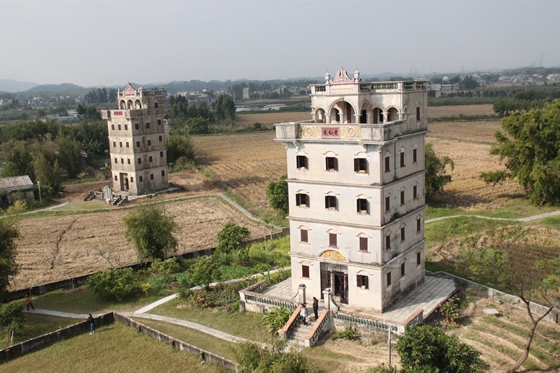
Ruishi Diaolou, located behind Jinjiangli Village, Xianggang Township. Constructed in 1921, it has nine floors and is the highest diaolou at Kaiping. It features a Byzantine style roof and a Roman dome.
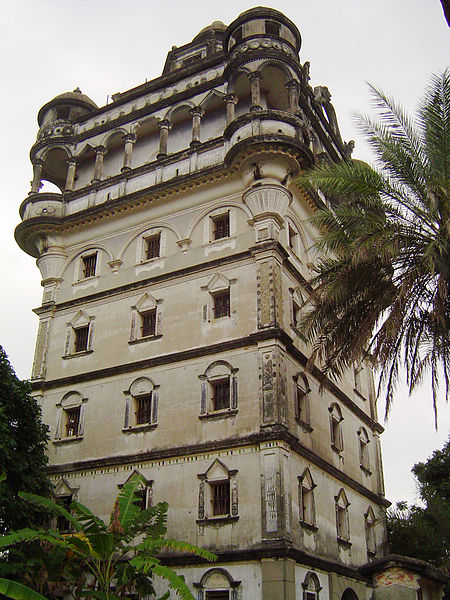
The Majianglong diaolou cluster spread across the villages of Nan’an Li, Hedong Li, Qinglin Li, Longjiang Li and Yong’an Li. Li Garden, in Beiyi Xiang, was constructed in 1936 by Mr. Xie Weili, a Chinese emigrant to the United States. Fangshi Denglou – Built in 1920 after contributions from villagers, this denglou is five stories high. It is referred to as the “Light Tower” because it had an enormous searchlight with a brightness much like that of the beam of a lighthouse.
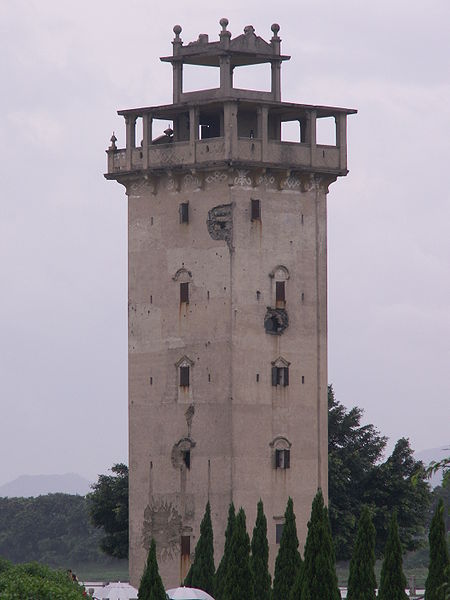
Bianchouzhu Lou (The Leaning Tower), located in Nanxing Village was constructed in 1903. It has seven floors and overlooks a pond. Tianlu Lou (Tower of Heavenly Success), located in Yong’an li, was built in 1922 and is seven storeys tall plus a roof top floor.
